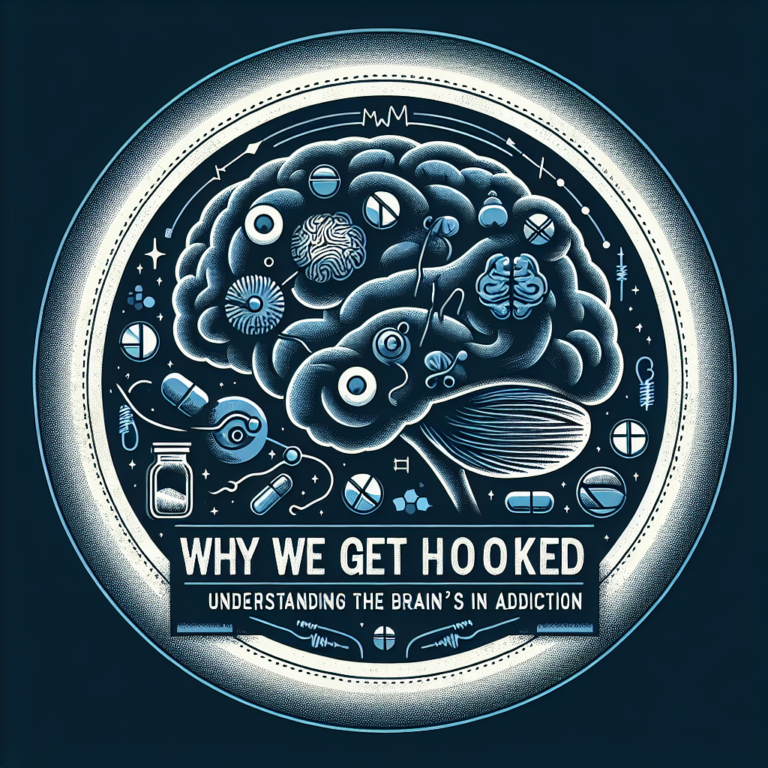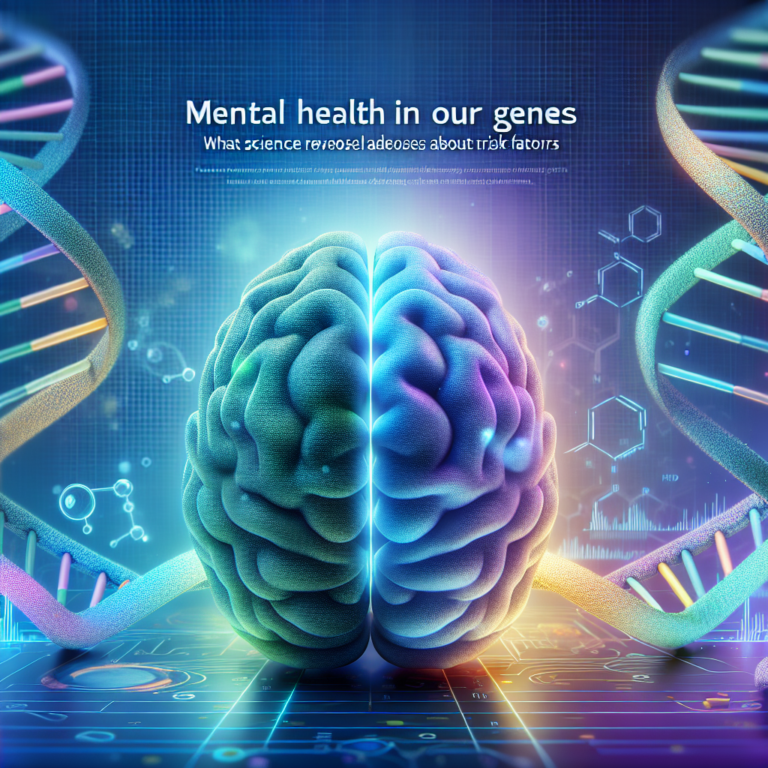
From Scatterbrained to Sharp: Essential Mental Exercises to Elevate Your Focus
Introduction: Unraveling the Clutter of the Mind
In a world overflowing with distractions, maintaining focus can feel like an uphill battle. We live in a fast-paced environment where notifications ping incessantly, multitasking is celebrated, and the allure of instant gratification pulls us in multiple directions. If you’ve ever found yourself staring blankly at a screen or forgetting what you were doing mid-task, you’re not alone. The journey from being scatterbrained to sharp is achievable through dedicated mental exercises designed to elevate our focus and attention.
This article delves deep into practical methods that transform the chaotic mindset into a sharper, more organized approach to daily challenges. From Scatterbrained to Sharp: Mental Exercises to Elevate Your Focus outlines innovative strategies that not only enhance your clarity and productivity but also foster a more profound connection with your thoughts and ideas.
Understanding Focus: The Science Behind Distraction
Before embarking on this transformative journey, it is essential to understand what affects our focus. Distraction can stem from various sources—internal, such as stress and anxiety, and external, like technological interruptions or environmental chaos. The brain processes thousands of pieces of information simultaneously, making it easy to become overwhelmed. Focusing is not merely about resisting distractions; it’s about training the mind to prioritize and filter information effectively.
To help you grasp the importance of focus, consider the following statistics:
| Statistic | Source |
|---|---|
| 30% of people report being easily distracted. | Psychology Today |
| Lack of focus can reduce productivity by up to 40%. | American Psychological Association |
Understanding these metrics can serve as motivation to improve your focus using the exercises discussed in the subsequent sections.
Mental Exercises to Transform Your Focus
1. Meditative Practices: Calming the Storm Within
Meditation is a cornerstone of psychological well-being and mental clarity. By engaging in meditation for even a few minutes daily, you can cultivate an improved sense of focus. A study published in the journal Psychological Science suggests that participants who engaged in mindfulness meditation experienced improved attention span and task performance.
Key Techniques:
- Mindfulness Meditation: Focus on your breath and allow thoughts to come and go without judgment.
- Guided Imagery: Use visualization techniques to create a mental space free from distractions.
Case Study: The Mindful Athlete
A group of professional athletes adopted a mindfulness meditation routine. Over six weeks, they reported increased concentration during competitions, allowing them to outperform their previous records. This highlights how mental exercises can be applied in high-pressure situations, improving focus and performance.
2. The Pomodoro Technique: Time Management Mastery
The Pomodoro Technique is a time management method that encourages bursts of hyper-focused work followed by short breaks. Developed by Francesco Cirillo in the late 1980s, this method has stood the test of time due to its effectiveness.
Steps to Implement:
- Choose a task to focus on.
- Set a timer for 25 minutes (one Pomodoro).
- Work on the task until the timer goes off.
- Take a short 5-minute break.
- After four Pomodoros, take a longer break of 15-30 minutes.
Case Study: A Corporate Reboot
A large marketing firm implemented the Pomodoro Technique for its teams. Within just two months, the firm reported a significant boost in productivity, with employees stating they felt less overwhelmed and more accomplished at the end of the day.
3. Mental Exercises for Cognitive Flexibility
Cognitive flexibility refers to the brain’s ability to switch between thinking about different concepts, or to think about multiple concepts simultaneously. Enhancing cognitive flexibility can dramatically improve focus.
Exercises to Try:
- Brain Games: Engage in puzzles, chess, or strategic games that require shift in thinking.
- Learn a New Language: This not only enhances cognitive flexibility but heightens mental acuity.
Research Insight: A study by the University of Edinburgh found that engaging in challenging mental tasks can increase cognitive flexibility and sharpen concentration levels.
4. Visualization Techniques: Picture Your Focus
Visualization is a powerful mental exercise that can elevate your focus and concentration. This technique involves creating vivid mental images to stimulate the brain’s capabilities.
Steps to Utilize Visualization:
- Close your eyes and envision a task you want to accomplish.
- Picture every detail, imagining yourself executing the task with precision and focus.
- Use this visualization before starting the actual task.
Case Study: The Performer’s Edge
Many professional performers use visualization techniques to enhance their focus. By mentally rehearsing their performance, they tap into enhanced concentration during actual performances, improving their overall execution and engagement with the audience.
5. Journaling: Reflect and Refocus
Journaling acts as a mirror to your thoughts and can help clarify what needs your focus. Daily reflection enhances awareness and promotes a focused mindset.
Suggested Journaling Practices:
- Gratitude Journaling: Write about three things you are grateful for each day to instill positivity.
- Focused Journaling: Dedicate time to jot down tasks for the day, assessing what requires immediate attention versus long-term goals.
Illustrative Case: A group of students who maintained a daily journal reported that they felt more organized and focused, which translated into better academic performance.
6. Physical Exercise: The Mind-Body Connection
It’s no secret that physical activity promotes mental sharpness. Regular exercise releases endorphins, reduces stress, and increases blood flow to the brain—all of which are pivotal for enhanced focus.
Types of Recommended Exercises:
- Aerobic Activities: Such as running, swimming, or cycling elevate heart rate and stimulate brain health.
- Yoga: Combines physical movement with breath control, enhancing mental clarity.
Case Study: The Corporate Wellness Program
A corporate wellness initiative incorporating regular physical activity demonstrated a 25% increase in employee focus. Employees shared that they felt more alert after group workout sessions and reported an increase in productivity.
7. Healthy Mind: Nutrition and Focus
A balanced diet plays a crucial role in cognitive performance. Specific nutrients and food groups are identified as beneficial for enhancing focus.
Focus-Enhancing Foods:
- Fatty Fish: Rich in omega-3 fatty acids, promoting brain health.
- Blueberries: Packed with antioxidants that protect the brain from oxidative stress.
- Leafy Greens: Beneficial for long-term cognitive functioning.
Visual Aid: The Brain Food Chart
| Food | Benefits |
|---|---|
| Fatty fish | Improves memory and cognitive function |
| Blueberries | Enhances brain health and focus |
| Dark chocolate | Boosts mood and mental alertness |
8. Prioritization and Planning: The Art of Saying No
A cluttered calendar can distract even the most focused individuals. Learning to prioritize effectively and say no is crucial for maintaining clarity.
Strategies for Effective Prioritization:
- The Eisenhower Matrix: Categorize tasks into four quadrants based on urgency and importance to streamline decision-making.
- Daily Highlights: Choose one to three key tasks each day that align with long-term goals, ensuring focused effort on what truly matters.
Case Study: A Entrepreneur’s Plan
An entrepreneur who practiced strict prioritization noted a 50% increase in productivity when focusing strictly on high-impact tasks. This disciplined approach minimized distractions and encouraged sharper focus.
9. Sleep and Rest: Recharge Your Mind
Neglecting rest can severely impact focus. The link between adequate sleep and cognitive performance is well-documented. Quality sleep rejuvenates the mind and consolidates memories, making it imperative for sharpening focus.
Tips for Better Sleep:
- Aim for 7-9 hours of quality sleep each night.
- Create a calming bedtime routine to signal your body it’s time to rest.
- Limit screen time before bed to improve sleep quality.
Research Backing: The National Sleep Foundation’s research shows that well-rested individuals have improved alertness and cognitive functioning, directly correlating with enhanced focus.
Conclusion: Taking the Leap from Scatterbrained to Sharp
Transitioning from a scatterbrained state to one characterized by sharp focus requires dedication and practice. By incorporating these mental exercises into your daily routine, you can not only enhance your concentration but also foster an environment conducive to productivity and well-being.
Remember, the journey from scatterbrained to sharp isn’t just about applying techniques; it’s about creating a lifestyle that prioritizes mental clarity. This shift can yield profound benefits in both your personal and professional life.
As you embark on this transformative path, take actionable steps, commit to consistent practice, and celebrate your progress. The ability to focus is within your grasp—take the leap!
FAQs
1. How long does it take to see improvements in my focus?
It varies for each individual, but many notice improvements within a few weeks of consistent practice of mental exercises.
2. Are there specific mental exercises you recommend?
Yes! Techniques such as mindfulness meditation, the Pomodoro Technique, and cognitive flexibility games are highly effective.
3. Can diet really influence focus?
Absolutely! Consuming brain-boosting foods like fatty fish, blueberries, and leafy greens can enhance cognitive performance.
4. How important is sleep in maintaining focus?
Sleep is crucial for cognitive functioning; lack of it can severely diminish focus and overall mental health.
5. What if I can’t concentrate for long periods?
Start with shorter focus intervals, gradually increasing the duration as your capacity for concentration improves.
By adopting these strategies outlined in "From Scatterbrained to Sharp: Mental Exercises to Elevate Your Focus," you can reclaim your mental clarity, improve your productivity, and lead a more fulfilling life. Start your journey today!














